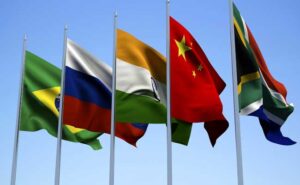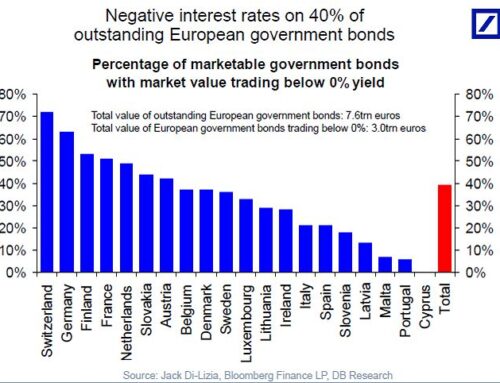
Argentina has recently been invited to join the BRICS, a group of five major emerging economies: Brazil, Russia, India, China, and South Africa. This is a significant development for Argentina, as it will give the country access to a larger market and more investment opportunities.
So, what can Argentina bring to BRICS? Here are a few things:
- A strong agricultural sector: Argentina is a major producer of agricultural products, such as soybeans, corn, and wheat. This could be a valuable asset to BRICS, a major food consumer. Argentinian agriculture is known for its production of a wide range of crops, including soybeans, corn, wheat, sunflowers, fruits, and vegetables. The country is also a major producer of beef, poultry, and dairy products.
- A diversified economy: Argentina has a diversified economy, with strengths in agriculture, manufacturing, and tourism. This makes it a more attractive investment destination than some other BRICS countries, which are more reliant on a single sector.
- A strategic location: Argentina is located in South America, which is a region with growing economic potential. This could make Argentina a gateway for BRICS businesses to expand into new markets.
These factors could make it a valuable partner for BRICS in other areas, such as education, climate change, and sustainable development.
Here are some of the highlights of Argentina’s economy:
- GDP: Argentina’s GDP is about $400 billion, making it the 28th largest economy in the world.
- Exports: Argentina’s main exports are agricultural products, such as soybeans, corn, and wheat. Other important exports include oil, gas, and manufactured goods.
- Imports: Argentina’s main imports are machinery, vehicles, and fuels.
- Inflation: Argentina has a history of high inflation, but it has been controlled in recent years. The inflation rate in 2023 is expected to be around 30%.
- Unemployment: The unemployment rate in Argentina is around 7%.
Here are some of the big economic events in Argentina’s history:
- The Great Depression: The Great Depression had a devastating impact on Argentina’s economy. The GDP fell by 50% and unemployment rose to 25%.
- The Dirty War: The Dirty War was a period of military dictatorship in Argentina from 1976 to 1983. During this time, the government committed widespread human rights abuses and economic mismanagement.
- The Convertibility Plan: The Convertibility Plan was a currency peg system implemented in Argentina in 1991. The plan was successful in stabilizing the economy, but it also led to high levels of debt.
- The 2001 financial crisis: The 2001 financial crisis was a major economic crisis that led to the collapse of the Argentine peso. The crisis caused widespread poverty and unemployment.
There are many benefits for Argentina as it joins BRICS. Here are a few of them:
- Access to a larger market: BRICS is a group of five major emerging economies with a combined GDP of over $20 trillion. This means that Argentina will have access to a much larger market for its goods and services.
- Increased investment: BRICS countries are major investors in the global economy. Argentina’s membership in BRICS could attract more investment from these countries.
- Technology transfer: BRICS countries have advanced technologies in several sectors, such as telecommunications, engineering, and manufacturing. Argentina could benefit from this technology transfer.
- Development assistance: BRICS countries have provided development assistance to other countries in the past. Argentina could also benefit from this assistance.
- Political cooperation: BRICS countries share common interests on a number of issues, such as climate change, sustainable development, and global governance. Argentina’s membership in BRICS could strengthen its political cooperation with these countries.
Here are some specific things that Brazil, Russia, India, China, and South Africa can give in return:
- Brazil: Brazil can give Argentina access to its large market, as well as investment and technology transfer. Brazil is also a major producer of agricultural products, which could benefit Argentina’s agricultural sector.
- Russia: Russia can give Argentina access to its energy resources, as well as investment and technology transfer. Russia is also a major player in the global arms market, which could benefit Argentina’s defense industry.
- India: India can give Argentina access to its large market, as well as investment and technology transfer. India is also a major producer of information technology and pharmaceuticals, which could benefit Argentina’s manufacturing and healthcare sectors.
- China: China can give Argentina access to its large market, as well as investment and technology transfer. As China Known as the Factory of the world, this may well set Argentina to to benefit. Big population of china is the right market for Argentinian agriculture.
- South Africa: South Africa can give Argentina access to its financial markets, as well as investment and technology transfer. South Africa is also a major producer of minerals and metals, which could benefit Argentina’s mining sector.
But as We all know, great power comes with great Responsibility. Here I want to highlight their membership in BRICS will bring a number of challenges, as well as benefits.
- Competition: BRICS countries are major producers of a wide range of goods and services. This means that Argentina will face increased competition in its export markets. For example, Argentina is a major producer of soybeans, but so are Brazil and India, two other BRICS members. This could make it difficult for Argentina to compete in the global soybean market.
- Protectionism: BRICS countries have a history of protectionism. This could make it difficult for Argentina to export its goods and services to these countries. For example, China has imposed tariffs on a number of goods imported from Argentina, such as beef and corn. This has made it more difficult for Argentina to export these goods to China.
- Political instability: BRICS countries are not immune to political instability. This could disrupt trade and investment flows, and could also make it difficult for Argentina to cooperate with these countries on political issues. For example, Brazil has recently experienced a period of political instability, which has led to uncertainty about the country’s economic policies. This has made it more difficult for Argentina to predict how Brazil’s policies will affect its own economy.
- Differences in culture and values: BRICS countries have different cultures and values. This could make it difficult for Argentina to integrate into the BRICS group and to cooperate with these countries on a number of issues. For example, Argentina is a Catholic country, while China is a secular country. This could make it difficult for Argentina and China to agree on issues such as family planning and abortion.
Argentina’s membership in BRICS is a significant development that could have a positive impact on its economy. Although it has experienced numerous obstacles, it has also had some notable accomplishments. The country can expect to benefit from increased trade, investment, and technology transfer from BRICS countries. It has the chance to capitalize on its advantages and support global economic growth as a BRICS member.


